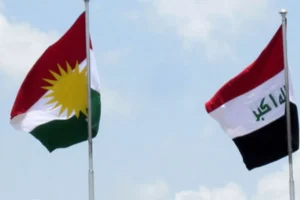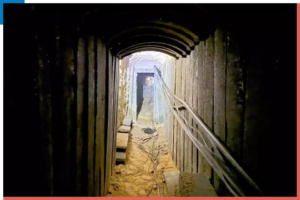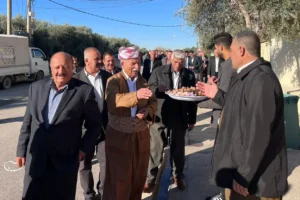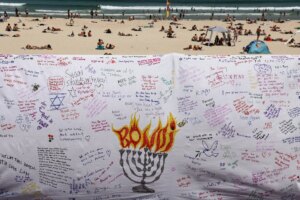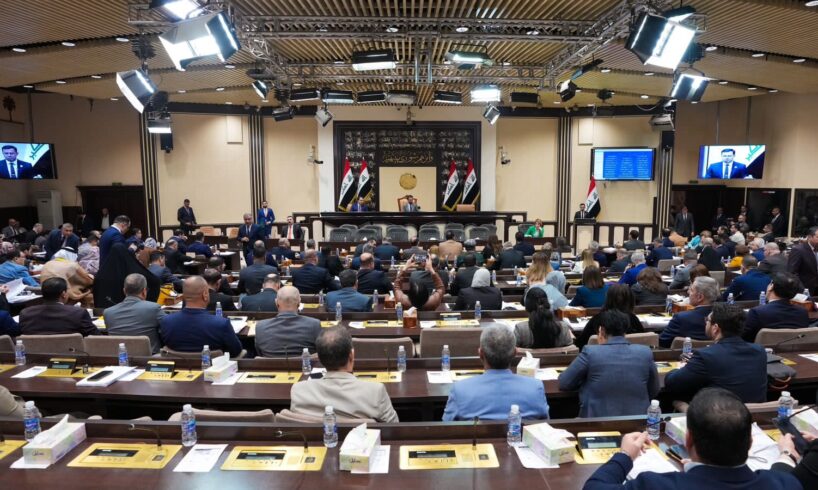
Shafaq News
Iraq’s parliament is preparing to vote on a newly amended version of a
draft law regulating public assembly and peaceful demonstration, a legislative
move that continues to stir concerns among civil society and press freedom
advocates.
The latest version, officially titled the Law on Freedom of Assembly and
Peaceful Demonstration, is scheduled for a vote during the parliamentary
session on August 2. The full text of the amendments—reviewed by Shafaq
News—has been formally prepared for final voting, following more than two years
of contentious debate.
WHAT ARE THE AMENDMENTS?
Dropping ‘Freedom Of Expression’ From The Title
One of the most significant changes in the current draft is the removal
of references to “freedom of expression” and the “right to knowledge” from both
the law’s title and its core definitions. Originally called the Law on Freedom
of Expression, Assembly, and Peaceful Demonstration, the renamed legislation
signals a narrowed focus by excluding explicit protections for speech and media
rights.
New Legal Definitions
The amendments introduce several new legal terms previously absent from
Iraqi law. These include:
-Sit-ins: Defined as continued peaceful occupation of protest sites to
demand legitimate rights.
-Spontaneous gatherings: Immediate citizen responses to urgent events,
exempt from the requirement of prior notification.
-Strikes: Peaceful abstention from work undertaken to secure lawful
demands.
The inclusion of these definitions grants legal status to forms of
protest that previously operated in a legal grey area.
From Permission To Notification
Under the revised text, public gatherings no longer require prior
government approval. Organizers are now only required to notify the local
administrative unit’s head 48 hours in advance. This notification must include
the event’s subject, time, location, and the names of up to three responsible
individuals.
While this move has been welcomed as a step toward compliance with
international standards, the amendments still allow authorities to object to or
relocate gatherings for “security or organizational” reasons.
Expanded Restrictions On Protest Conduct
Despite easing some procedural hurdles, the new draft law outlines
several prohibitions on protest activity:
-Carrying firearms or dangerous materials during demonstrations,
regardless of firearm licensing.
-Wearing masks or face coverings intended to conceal identity.
-Displaying slogans, symbols, or signs considered offensive to public
order or morals.
The law reaffirms longstanding bans on speech inciting sectarian,
racial, or religious hatred, or defaming religious beliefs—provisions that
human rights observers have previously warned could be used to silence dissent.
Protection Responsibilities And Compensation
Mechanisms
The proposed legislation outlines specific protections for
demonstrators, sit-in participants, and journalists. It requires security
forces to safeguard peaceful gatherings and stipulates that the use of force
must comply with international standards, applied only if a protest escalates
into violence.
Importantly, the law introduces shared accountability for damages. If
the perpetrator of violence or destruction remains unidentified, the state is
obligated to compensate victims, with the option to later recover funds once
the offender is known.
Repealing CPA Orders And Amending Iraq’s Penal Code
The draft law proposes the repeal of Coalition Provisional Authority
(CPA) Order No. 19 of 2003, which was enacted during the US occupation to
regulate assembly. It also calls for the removal of Articles 220 to 222 from
Iraq’s Penal Code, long criticized for enabling criminal charges against
protest organizers and participants.
Guarantees For Media Coverage And Judicial Review
The new draft provides explicit guarantees for journalists covering
demonstrations, allowing them to seek material and moral compensation if
harmed. In addition, any administrative decision to ban or relocate a protest
can now be challenged before the Court of Appeal, which is required to rule
within 72 hours.
WHY THE TIMING MATTERS?
The law’s introduction just months ahead of Iraq’s national elections,
set for November 11, has heightened public skepticism. The Iraqi Association
for the Defense of Journalists’ Rights criticized the parliament for failing to
publish the final version of the law ahead of the vote.
The group’s president, Ibrahim al-Sarraj, expressed concern over
conflicting versions of the bill and urged lawmakers to delay the vote and
engage in broader consultations with media and civil society organizations.
Despite these calls, parliament’s Human Rights Committee has defended
the draft, stating it aims to strengthen constitutional rights outlined in
Article 38 by providing legal clarity and protections for protest movements.
Written and edited by Shafaq News
staff.
